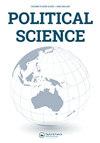美国的医疗保健政治
IF 1.2
4区 社会学
Q3 POLITICAL SCIENCE
引用次数: 0
摘要
对美国和同行国家医疗保健的比较研究经常强调美国系统的一些明显特征,包括高成本、碎片化和健康不平等。虽然美国独特的政治因素和制度是造成这些差异的主要原因,但美国政治与文化、经济、种族和社会因素之间也存在明显的互动。许多关于美国卫生政治和政策的全面综述始于20世纪,突出了第一次和第二次世界大战等全球和国家历史事件以及包括民权运动在内的社会运动的重要影响。然而,美国的医疗保健政治也继续受到美国早期历史、政府机构和制度的影响。为了理解美国的医疗保健政策,还必须考虑其他非健康因素的遗留问题及其与健康政治的交叉点,包括奴隶制和持续的种族主义、早期新教关于死亡和自力更生的观念、私人慈善和志愿服务的地方性、联邦制、公众对联邦政府的不信任、,以及卫生专业的发展等因素。这些历史事件和其他文化、经济或社会因素往往严重影响公众舆论、政治参与和医疗保健不平等,在某些情况下,还为推进重要的医疗保健改革提供了机会之窗。美国政府机构的结构、政党和日益加剧的两极分化、民选领导人或政策企业家的独特特征,以及利益集团,特别是医疗保健系统中私人行为者的权力,都是影响美国医疗保健政治的重要因素。当代美国公共卫生政策文献侧重于减少健康不平等和改善获得医疗保健的机会的努力,以及最近促进政府监管和投资于环境和社会服务等非健康因素以减少人口健康不平等的改革思想的政治。本文章由计算机程序翻译,如有差异,请以英文原文为准。
Health-Care Politics in the United States
Comparative studies of health care in the United States and peer nations often highlight a number of distinct features of the American system including high costs, fragmentation, and health inequities. While unique political factors and institutions in the United States are prominent reasons for these disparities, there are also distinct interactions between American politics and cultural, economic, racial, and social factors. Many comprehensive overviews of American health politics and policy begin in the 20th century highlighting the important influence of global and national historical events, such as World Wars I and II, and social movements, including the civil rights movement. Yet, health-care politics in the United States also continues to be shaped by early American history, government institutions, and systems. To understand health-care policy in the United States, it is also necessary to consider the legacy of other non-health factors and their intersections with health politics, including slavery and ongoing racism, early Protestant notions of mortality and self-reliance, the localized nature of private charity and volunteerism, federalism, a public distrust of federal government, and the evolution of health professions, among other factors. Often these historical events and other cultural, economic, or social factors significantly shape public opinion, political participation, and health-care inequities, and in some cases, provide a window of opportunity to advance important health-care reforms. The structure of American government institutions, political parties and growing polarization, unique attributes of elected leaders or policy entrepreneurs, and the power of interest groups, particularly private actors in the health care delivery system, are all significant factors that shape health-care politics in the United States. Contemporary American public health policy literature focuses on efforts to reduce health inequities and improve access to health care as well as the politics of recent reform ideas that promote government regulation and investments in non-health factors such as the environment and social services to reduce population health inequities.
求助全文
通过发布文献求助,成功后即可免费获取论文全文。
去求助
来源期刊

Political Science
POLITICAL SCIENCE-
CiteScore
0.90
自引率
0.00%
发文量
13
期刊介绍:
Political Science publishes high quality original scholarly works in the broad field of political science. Submission of articles with a regional focus on New Zealand and the Asia-Pacific is particularly encouraged, but content is not limited to this focus. Contributions are invited from across the political science discipline, including from the fields of international relations, comparative politics, political theory and public administration. Proposals for collections of articles on a common theme or debate to be published as special issues are welcome, as well as individual submissions.
 求助内容:
求助内容: 应助结果提醒方式:
应助结果提醒方式:


